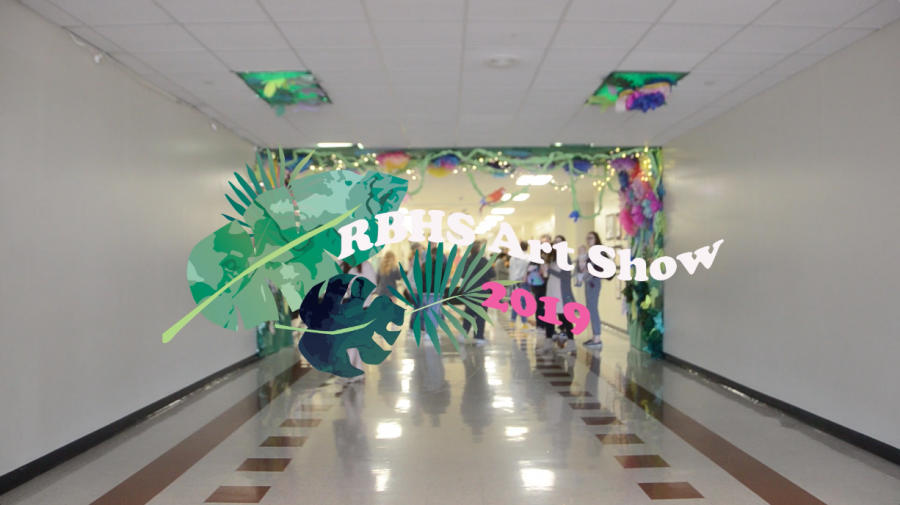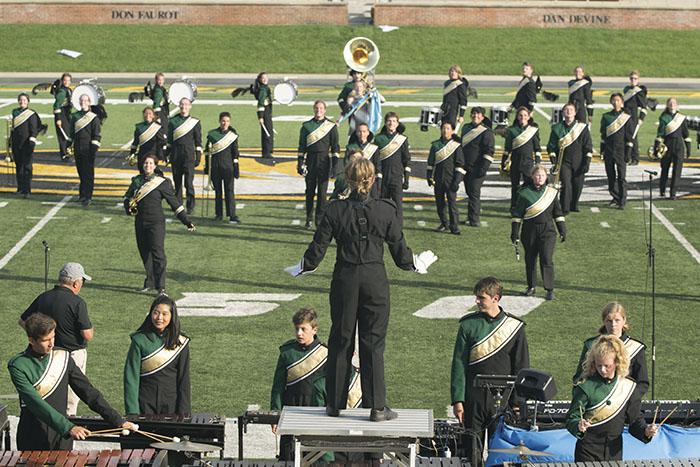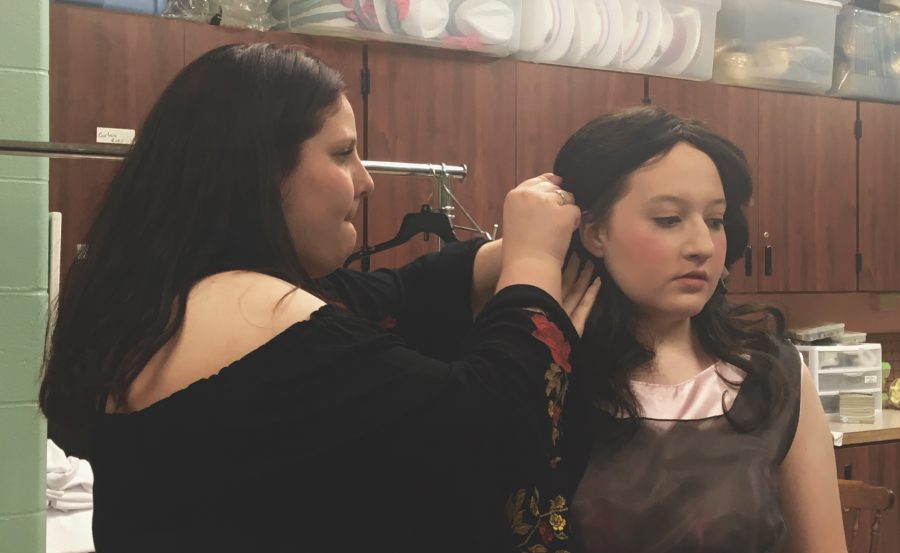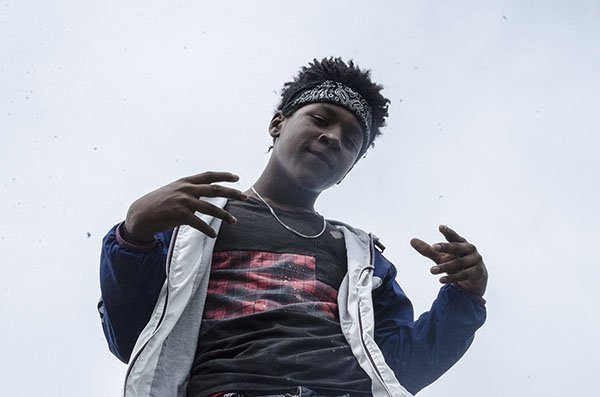
Every time I hear it, I cringe. My mood worsens. The words bite.
I can’t imagine a day when I don’t wake up next to a stack of unread books. I collect books like a museum, using up gift cards and grabbing old, unwanted copies from the library. I read anything I can get my hands on—fiction, nonfiction, textbooks even. Give me words, and I’ll give you my heart.
So when I hear yet another student has given up on reading, abandoning classics and poetry for video games and television shows, I can’t help but get frustrated.
I have no qualms with virtual worlds or cinematography. There are things to be learned from video games and movies. But a book is different. There’s something mystical—almost scary—about a book. As bestselling author Stephen King says in his memoir On Writing, “Writing is telepathy.” It’s the direct transfer of one person’s thoughts (their words) to another’s brain.
It’s creepy. It’s addictive. It’s reading.
And our world would not survive without it. We live and thrive on stories, on the sharing of ideas and experiences. We learn from books the way we learn from history.
Therefore, no education is complete without reading. When a student stops reading fiction and literature halfway through high school, when they use SparkNotes for every classic novel, when they stop trips to the library, they’re missing out on some of the most basic and important lessons they’ll ever learn.
For those of you who haven’t read in months, it’s time for those lessons to see the light. You’ll need them before you take that first, terrifying step into “the real world.” So I’ve compiled a list of the top 11 books a student must read before they graduate high school. I think you’ll find that most of these stories are not the “typical” boring books you try to avoid. Instead, you’ll discover there’s a lot more to literature than anyone could ever imagine.
1. The Lord of the Flies
William Golding’s classic piece on the savagery of human nature has stayed with me for years. I first picked up the book in 7th grade, thinking the tale would focus around some giant monstrous insect—a literal lord of the flies. Instead, I read an incredibly moving story about a band of choirboys who crash on an uninhabited island. There they fight the will for survival and camaraderie with the desire for power and dominance. The boys discover an inner evil that soon swipes all humanity from before their eyes.
2. The Hobbit
I read J.R.R Tolkien’s prequel to The Lord of the Rings when I was in third grade, and immediately fell in love. It’s everything you could look for in an epic fantasy adventure. It has dwarves, elves and the slaying of dragons. It has complete, imaginative descriptions that transport you from one world to another. It’s a book that invigorates and exhausts at the same time, as you travel along with the adventurous hobbit Bilbo Baggins over the Misty Mountains. And since Peter Jackson’s film adaptation will be coming out later this December, if you haven’t already read this classic, it’s time to pull your copy off the shelf.
3. King Arthur
I’ll admit it. I’m a huge sucker for Arthurian legend. Maybe it’s the idea of “might for right” and the famous Round Table. Maybe it’s the concept of “courtly love” and the passionate affair between Lancelot and Guinevere. Maybe it’s the magic conjured by Merlin and Morgan Le Fay. But something about Arthurian legend is incredibly captivating and has been for centuries. The stories tell of a legend that everyone wishes was true—the legend of the gleaming city of Camelot and of the wise and fair king that once ruled there. Several Arthurian tales you might want to look at are Sir Gawain and the Green Knight, The Once and Future King and Le Morte D’Arthur.
Or, you could always watch Monty Python and the Holy Grail. That’d work too.
4. The Great Gatsby
The Great Gatsby is one of my favorite books, period. It’s not for everyone, as it deals heavily in obscure themes and even more obscure characters. But, in my opinion, that’s what makes the classic enchanting. It focuses around Mr. Jay Gatsby, a man famous for his money, who throws marvelous house parties in the midst of Long Island’s Roaring Twenties. He is madly in love with the charming Daisy Buchanan, who is married to Tom Buchanan, who also happens to be committing adultery with another woman. Caught in the middle of this drama is Nick Carraway, a World War I veteran who has just moved in next to Mr. Gatsby. The characters face a whirlwind of love, pain and horror in a world caught up in its own sex, booze and flashing lights.
5. Of Mice and Men
This classic takes you about two days to read and 2 months to process. John Steinbeck manages to pack an insane amount of meaning, symbolism and depth in a novel no thicker than a spiral notebook. The story focuses around two men, George and Lennie, the former short and clever, the latter huge and docile. As brothers with no blood connection, the duo sets out to find work around the Salinas Valley, seeking a small fortune with which to build their personal paradise. There, they discover exactly how difficult it is to keep one’s promises, how easily “family” can be broken and how quickly honesty and innocence is shoved aside for comfort and greed.
6. Sherlock Holmes
It’s impossible to ignore Sherlock Holmes. Everyone knows who he is, and everyone knows his preceding reputation: the greatest detective in the world. (Unless, of course, you count Batman).
Sir Arthur Conan Doyle has crafted one of the greatest characters ever to have lived on a page and along with him, some of the greatest stories. The mysteries and solutions in the Sherlock Holmes tales are mind-blowing, important and incredibly entertaining. For a good place to begin, try The Hound of Baskervilles, A Study in Scarlet and The Sign of the Four.
7. Shakespearean Plays
When it comes to writing, Shakespeare is the ultimate genius. Few can compare to the artistry and beauty of his storytelling. Thus, it should be obvious that anything Shakespeare is a must-read. Plays like Romeo and Juliet, Hamlet and A Midsummer Night’s Dream have shaped culture for decades, and that won’t stop anytime soon. References to Shakespearean sonnets and plays pop up everywhere, from media and movies, to jokes and everyday conversation. So it’s extremely important that, if you haven’t ever read any of Shakespeare’s brilliant Iambic Pentameter, you start now.
8. Chronicles of Narnia
Narnia was the Hogwarts before Hogwarts. When C.S Lewis’ famous fantasy series first hit the shelves in 1950, Narnia became every child’s escape. I read it every night before bed when I was younger, and the story is no less enchanting now that I’m older. The plot centers around the magical adventures of beasts, talking animals and human children in a fairy-tale land behind a wardrobe. The series includes The Magician’s Nephew, The Lion, The Witch, and the Wardrobe, The Horse and His Boy, Prince Caspian, The Voyage of the Dawn Treader, The Silver Chair and The Last Battle.
9. Fahrenheit 451
When Ray Bradbury died in June of this year, I picked up his classic, Fahrenheit 451, for the first time since middle school. I opened to the beginning page and read, “It was a pleasure to burn.”
That sentence is not only one of the best “hooks” in the history of ever, but it marks the beginning of a whirlwind. The setting alone is fascinating—a dystopian world where books are outlawed and any house containing literature is burned to the ground. I think this book is hugely underrated and is a definite must-read for any student.
10. The Giver
Similar to Fahrenheit 451, The Giver looks in on a dystopian future; one that has the appearance of utopia. Each citizen is assigned a separate role, and taught “Sameness” so that pain and emotion is nonexistent. The main character, Jonas, is assigned to meet “The Giver,” where he is taught color, knowledge, and feeling. The secret causes him to view his unethical, black-and-white world with horror and disgust. Eventually, he must decide to stay with the life he knows or the life he craves.
11. Harry Potter
If you haven’t read the Harry Potter series, shame on you. Shame. On. You. You’ve basically missed out on years of incredible imagination, beautiful characterization and powerful emotion. Go read this series. Just go read it.
Although, by now, you’ve probably had most of the series spoiled for you. Y’know, like the fact that Dumbledore dies. (Whoops. Spoiler alert.)
I hope you’ll find this list useful and that you’ll read as many of these books as you can. If you have any thoughts or opinions on the stories, post your comments below!
By Lauren Puckett
(Note: I haven’t included most books that are offered in Rock Bridge or middle school classes, such as East of Eden and To Kill A Mockingbird. Those are, of course, definitely books you should look into if you haven’t already read them.)
Other reading suggestions:
Peter Pan by J.M Barrie
Tuck Everlasting by Natalie Babbitt
The Illiad by Homer
Alice in Wonderland by Lewis Carroll
Pride and Prejudice by Jane Austen
The Catcher in the Rye by J.D Salinger
The Wind in the Willows by Kenneth Grahame
Dracula by Bram Stoker
Frankenstein by Mary Shelley
A Tale of Two Cities by Charles Dickens
Grimm’s Fairy Tales by Brothers Grimm
Brave New World by Aldous Huxley
Catch 22 by Joseph Heller



















































































Trisha Chaudhary • Sep 12, 2012 at 10:12 pm
I can hear your voice through this piece (: It makes me want to just dig into a good book.
Ashleigh Atasoy • Sep 12, 2012 at 5:50 pm
Lauren, this ROCKS. I love your writing style and how you manage to make the most ordinary things, so FUN